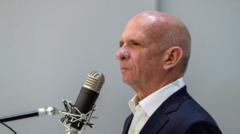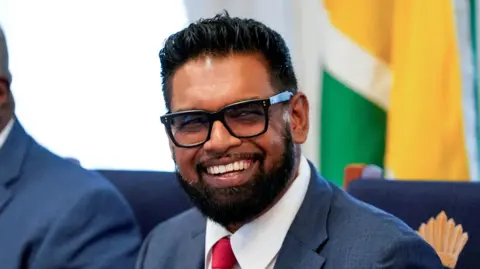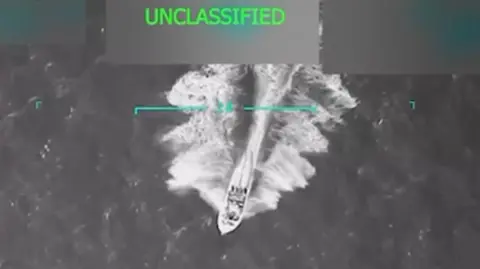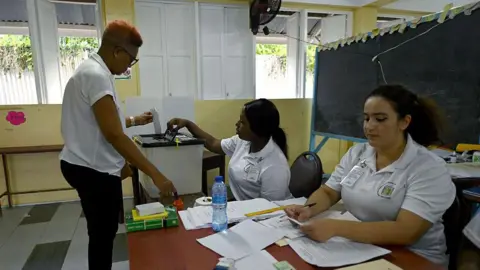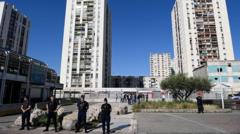Venezuela's former head of military intelligence, Hugo Carvajal, known as "El Pollo" or The Chicken, has faced a significant downfall as he pleaded guilty to drug trafficking and narco-terrorism charges in the United States. Once a prominent and intimidating figure in the Venezuelan military, Carvajal's plea comes amid serious allegations from U.S. authorities that he was involved in a drug-smuggling operation comprising influential members of the Venezuelan armed forces.
Carvajal's journey has drastically shifted from a position of power under the late President Hugo Chávez to that of a convict. His arrest in Madrid was a spectacle, marked by attempts to disguise himself with a fake moustache and wig before being captured. His ties to a group known as the "Cartel de los Soles," which is composed of high-ranking military officials, have been highlighted in statements from the U.S. Attorney's Office. The office accuses Carvajal and his associates of using cocaine to corrupt and poison North American cities.
The charges extend beyond mere trafficking; the U.S. Justice Department alleges that Carvajal also collaborated with leftist Colombian rebels, supplying them with weapons and shielding their cocaine shipments en route to the U.S. He reportedly received large sums of money for this illicit support, revealing the extensive web of crime he was involved in.
There is speculation surrounding Carvajal’s sudden guilty plea—switching from a denial two years prior—which raises questions about potential plea deals. His access to sensitive information regarding Nicolás Maduro’s government could prove crucial, especially since Maduro himself has faced U.S. charges of "narco-terrorism" and subsequent sanctions imposed by American authorities.
Relations between Carvajal and Maduro have been strained since 2017 when Carvajal voiced support for demonstrations against the government, a stance that completely deteriorated in 2019 when he called for military backing for opposition leader Juan Guaidó’s uprising. This divergence prompted Carvajal to flee to Spain, where he remained in hiding before his eventual capture and extradition to the U.S.
As the case unfolds, the implications extend beyond Carvajal alone, drawing attention to the complex and often dangerous intertwining of drug trafficking and politics within Venezuela, particularly under the shadow of Maduro's administration.

